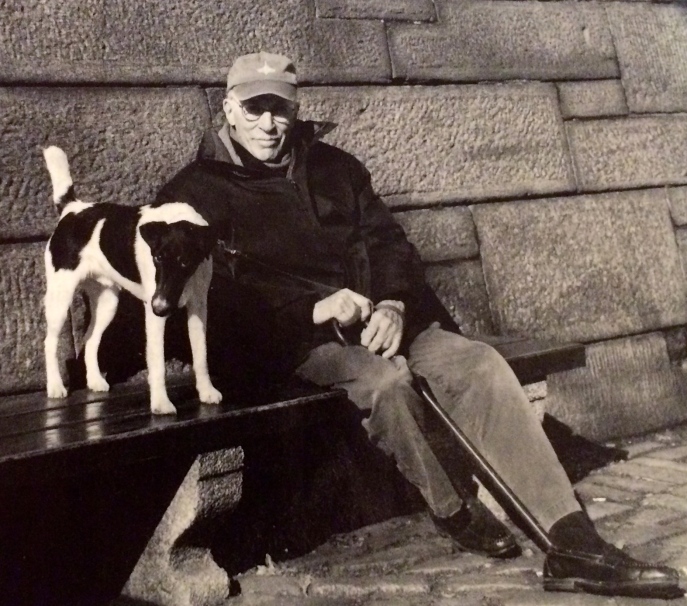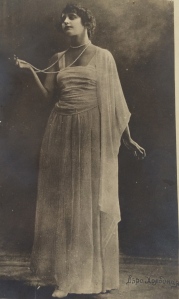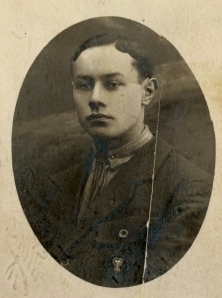[Whatever the headline may suggest, this post is not about last Tuesday’s election. My feelings about that are indeed awful, as if someone had suddenly and unexpectedly died, except it’s not the heartrending death of a someone but of political, ethical and perhaps even personal life as I and everyone I know has come to expect it. However, everything that can be said at this point has already been said, by other bloggers, columnists, friends. As for the frighteningly uncertain future, we can only grit our teeth and wait for whatever comes next. So I am returning here to last May, after Bill’s death and my visit to the undertaker.]
Bill died on a Friday. On Saturday morning, of necessity, I visited the undertaker/funeral director. I then got myself home and didn’t go out until Monday. There were comforting phone calls, which made me sad when they ended because I was alone in the house again. There was also cuddling with the cats and raw sorrow. It felt as if a large part of me had been cut away, leaving a hollowed-out bleeding cavity. Solicitous acquaintances sent flowers. I had no desire to eat (although I knew I should), and wished I could sleep (but couldn’t). The refrigerator was still full of Orgain, a packaged drink somewhat like Ensure but designed by a doctor undergoing treatment for cancer and allegedly composed of more nutritious ingredients, which Bill had been able to consume even when the medication he was taking to slow the progression of his pulmonary fibrosis removed his appetite and made him nauseous. I survived the first weekend on two or three daily vanilla Orgains.
I did go to bed early and lay there until it was light again, but if I slept (and I probably did, in fitful bits) I don’t remember it. I do remember my law-school-trained mind spinning like a kaleidoscope gone crazy, unable to focus either on my misery or what I had to do next on Bill’s behalf. Which was to (1a) sell the red Honda he had driven; (1b) try to return to the distributor for credit his newest and virtually unused portable oxygen concentrator, five pounds lighter than the one Medicare had provided — for which he had paid nearly $2000; (1c) close his credit card accounts; (1d) notify his insurers of his death; and (1e) verify that I would not need to probate the will, since New Jersey doesn’t require it if the decedent owned nothing solely in his own name at the time of death. There was also what had to be done, all by myself, on my own behalf. Which was to (2a) sell the condo as soon as I could, since it was both too big and too expensive for me to maintain alone much past the end of the calendar year without seriously dipping into capital; and also to (2b) find another place for the cats and me to live as soon as the condo was sold, although the money to buy this “other” place, when I found it, was solely the equity in the still unsold condo because I was pretty sure I didn’t qualify for another mortgage while I still had one. (A few weeks later, I found out I was right. I was coldly informed by loan officers at two separate banks that I would need to show at least $10,000 in monthly income to carry the two mortgages, even for only the three months or so before the condo would presumably sell. Hah. That was not something I would ever have been able to do, even when I was working.)
The (1a-1e) through (2a-2b) in the prior paragraph is of course so neatly organized because I am writing this piece six months later; organization or any kind of plan was completely beyond me that weekend. My mind lurched from “close his credit card accounts” to “see if I can get a mortgage” to “should I take the car to Honda or try to sell it myself” to “do I know a lawyer I can consult about the will who won’t charge me” to “the condo is an unsightly mess of medical equipment and books all over the floor” to “how could he leave me to deal with all this by myself?” to “I need more Orgain from Amazon, chocolate flavor this time.” Then one of the cats, still missing Bill, would come to the bed in the middle of the night to be scratched, petted and comforted. And I would cry, in the dark, into her fur.
Everyone who called advised doing nothing for a while until I felt stronger. That was good advice. But the Type A person I also am thought: What do they know? “Listen to what your body wants,” said Bill’s niece, a psychotherapist practicing in Israel. Well, all right. Unfortunately, by Monday — when I attempted to walk to the brick mailbox stand two driveways away from mine — I realized I could move only very slowly and was wobbling. Was my body trying to tell me something? I began to eat again, carefully, because I knew I should, and also because kind acquaintances were deluging me with offers of meals at their house, meals at restaurants, prepared meals brought in (one even vegan and surprisingly tasty) — none of which I could in good conscience refuse — and also because a survey of the refrigerator and pantry cabinet revealed so much food stored there to tempt Bill’s appetite that I would have to give it away, throw it all out or begin consuming some of it. Sleep didn’t come as easily as the meals. And the trips to the mailbox were becoming even more difficult. By the end of the first week, I was making them only every other day. (Since Bill was the King of Catalogues, that meant the box was so stuffed when I did eventually open it that I hardly had the strength to pry out its contents and scraped the outsides of my fingers raw on the metal sides of the opening.) A friend who picked me up to feed me rotisserie chicken and salad had stone slabs for steps up the grass from her driveway to the house. I had to ask her to let me clutch her arm to make it to the front door.
This was both embarrassing and worrying. I was all alone in Princeton. Although they were warm and supportive on the phone, one son lived in Florida and the other shuttled back and forth by train between work in D.C. and weekends with his still-young children and wife in New York. If I became too weak to take care of myself, not to mention all the things needing to be done, then what? By the time I stepped out the door to get the mail a week to the day after Bill had died, my heart was pounding loud and frighteningly fast, I gasped for breath as if I too had suddenly developed pulmonary fibrosis, and I was so dizzy the ground under my feet spun around. As I proceeded very slowly towards the box with legs far apart, like Charlie Chaplin, to keep some kind of shaky balance, I felt I might be on the verge of dying — not that very minute, but soon. Although my head was still revolving like a top, I was able to grasp and hold on to one thought: Call a doctor before it was too late.
Easier said than done. For nine and a half years, since coming to Princeton, Bill and I had been seeing an internist highly recommended by the nurses in the major medical practice nearby as the most patient-friendly. Dr. L. was indeed apparently much interested in each of his patients, at least for the time allotted him by the insurance companies, and even seemed to remember just about everything about you when you showed up for bi-annual checkups without first having to review your chart in your presence. But as we each grew older, and more symptoms of this and that surfaced, Bill pulled away. He was mostly seeing specialists by then, anyway. I hung on to Dr. L. until last year, although Bill kept urging me to switch to Dr. G., another internist in the same practice whom he liked much better on the one or two occasions he had consulted him.
The cause of Bill’s disenchantment with Dr. L., and eventually mine, was that patient-friendly as he was, Dr. L. was a worrier. He was also perhaps over-impressed by our academic and professional credentials and shared all his proactive medical hypotheses with us. If there were a symptom or a complaint, he not only knew all the conditions and diseases of which it might be a harbinger, which would need to be tested for, but would share all this (potentially scary) thinking with us. In my seventies, I was sufficiently healthy that Dr. L.’s proclivities as one’s medical advisor didn’t really bother me. Later it did, very much. By then I had enough to worry about, without contemplating dire possibilities that might not come to pass. But that’s another post, for another time. Suffice it to say that last March, Bill prevailed, I switched to Dr. G., and obtained an appointment for the end of May.
Thus, in the middle of May when I suddenly needed him, Dr. G. had not yet met me. Moreover, a phone call revealed he was completely booked through the end of June, and certainly couldn’t squeeze in a new patient he didn’t yet know. Although no one suggested it, I felt unable to return to Dr. L. Nor would I under any circumstances take myself to the Princeton ER, given my recent experiences at that hospital. (See “After Death, What?” TGOB, July 29, 2016.) However, Dr. G.’s appointment secretary was very kind when she learned my husband had recently died and I felt as if I were going to die too. Her husband had died two years previously and she had felt exactly the same way. She would try to find someone else to see me. (I did hope it wasn’t going to be Dr. L. but kept that to myself.) Good as her word, she called back an hour later with the name of Dr. S., who had recently joined the practice and therefore had an opening, five days from then (no, not sooner), at 8 a.m.
Beggars can’t be choosers. In the meanwhile, I googled Dr. S. His photo showed pink cheeks, a big smile on a round young face, lots of neatly combed dark hair; he looked as if he’d just emerged from college. Although he hadn’t gone to any of the medical schools known to me through fifteen years of living with Bill (a psychiatrist), young Dr. S. had practiced for a couple of years in Philadelphia, could probably determine whether I was dying or not, and could then hand me over to the appropriate specialist(s) to treat whatever was wrong with me.
Dr. S. looked exactly like his picture. He might have been a classmate of one of my sons when in their twenties. Still, he was an M.D.. I explained why I was there. Husband died ten days ago. Heart fast and pounding. Unable to breathe. Legs like cooked spaghetti. So dizzy the world was turning round and round. No balance. Unable to think a straight thought. “Well, let’s see,” said young Dr. S. soothingly, reaching for his tools. My blood pressure was normal. My heart rate was normal. My blood oxygenation level was 98-99 (so the breathing was normal). “Then why am I feeling like this?” I demanded. “As if I were going to die?” Young Dr. S. must have been a very good student in whichever medical school he had attended. He knew exactly what ailed me. It sounded as if it had come right out of a textbook.
“Somatization!” he declared.
He meant it was all psychosomatic. The pounding heart, the breathlessness, the vertigo, the loss of balance, the inability to focus. I had never heard the noun form before, but if there’s a medical adjective, there’s usually a big and latinate related noun. “It’s just a reaction to your loss,” he said to me in a voice appropriate for addressing a small child or someone not quite with it.
And what was I supposed to do with this information? Learn to live with it? Dr. S. mentally turned pages till he reached the one that dealt with treatment for the grieving patient. He then told me I needed sleep and food. I was to get eight hours of sleep, and if I couldn’t fall asleep when I went to bed, I should get up and read till I felt sleepy, and then try again. I was to eat whatever I wanted, even if it was french fries, without worrying about it, because I now needed the calories. I suppressed various impulses to tell him I wasn’t stupid and instead listened impassively, not quite the good and grateful patient contemplated by the medical textbook but close enough. What was the point in pushing it with young Dr. S.? He was doing the best he could. He also told me to exercise. “Even if I’m moving like Charlie Chaplin, but more slowly?” Yes, exactly. And then I would start to feel better. Well, perhaps that’s what the medical textbook said. “Could you also write a scrip for ten days of a mild sleeping pill?” I asked. “To get me through till my appointment with Dr. G.” No, young Dr. S. feared I might become addicted. If I really couldn’t sleep after the getting up and reading for a while, I might try Benadryl, which is over-the-counter and not (he said) addictive.
While waiting in line at Rite-Aid to pay for the Benadryl, I thought about Dr. S.’s big word for feeling like death. Somatization. I had never believed that symptoms of what were later diagnosed as real physical complaints, like chronic fatigue syndrome or Lyme Disease, were psychosomatic, even if they were first dismissed as such. Apparently I was wrong. It seems in some instances the body does speak up to tell you what you’re really feeling. Mine, for instance. It was saying that all of me was suffering from mortal grief, even where my heart was actually beating regularly and my lungs actually functioning normally. I had just been been in shock too great to realize it.
And that did make me begin to feel better. Or at least less worried. The Benadryl was a bad idea; one tablet knocked me out for eleven hours and left me woozy for twenty-four. But after that I began to fall and stay asleep without help, except from the cats. So although I continued to weep often and spontaneously when by myself, I had become somewhat more optimistic about being able to manage living without Bill, even if unhappily, by the time my scheduled appointment with Dr. G. rolled round.
The following week, the undertaker called me to come pick up Bill’s ashes. For the $3,000 I had paid him he probably would have kept them for a while, had I asked. But better sooner than later, and be done for good with that unctuous and falsely sympathetic man. The bag containing the plastic urn seemed surprisingly heavy when I picked it up, although Bill hadn’t been tall or big-boned. Regretfully, I needed Mr. Unctuous to carry it to my car for me. I hadn’t thought to bring a cane (although there were eight or nine of Bill’s, in various styles, in the house) because I wasn’t used to needing one. But I was still afraid I might fall if I held the heavy bag while going uncertainly down the incline from the funeral home door to the curb. However, I wasn’t dizzy anymore, and that was something. Besides, Dr. G. had written a scrip for physical therapy to get me stronger again and I already had a first appointment scheduled. He had also given me another prescription, for thirty days of a mild sleeping pill. I did fill it, but by then I no longer wanted or needed sleep aids. Six months later, the thirty little pills are still in the drawer of my bedside table.














